
When it comes to longevity as a young entertainer in Hollywood, there aren't many who compare to Keke Palmer. The multi-hyphenate artist has been working in the industry for nearly two decades, doing everything from starring in her own Nickelodeon show and delivering award-worthy film performances, to debuting as the first Black woman to play Cinderella on Broadway, and hosting her very own talk show. Her creativity is limitless, which is why she's never tied herself down to one outlet of expression.
Well, Keke just added director to her name! The new mother recently released her second studio album Big Boss, accompanied by a self-directed film of the same name to go along with it. The visuals are an honest and personal exploration of Keke's experience working in a male-dominated industry, how she almost lost her way, and the inspiration she found within herself to keep following her dreams.
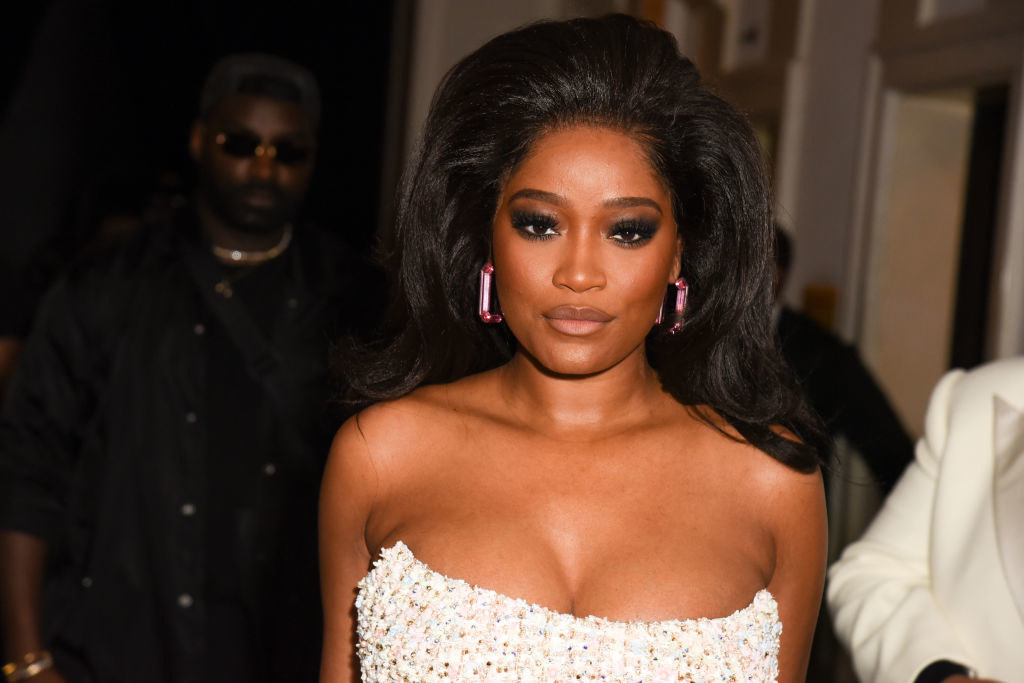
What’s the significance behind the album/film's name Big Boss?
It's because that's how I feel. I've been through a lot in this industry to get to a point where I kind of know what it takes to be a boss. I know what it takes to kind of own my space and deliver the way that I want to deliver. The confidence that it's taken me to get here was not built from a great situation. It was built from a lot of trials and tribulations. Ultimately, it's what's allowed me to say, "Yeah, I can own this table. I can sit at this table. I know my value."
The visuals chronicle your early years in the music and entertainment business, and we see you struggle through staying true to your identity, pressure to do certain things that were against your beliefs, etc. Why did you want to tell your story in this way?
It was my manager. He was like, "Hey, you should do a visual. I've seen you do music and you also act, that should be a part of the story that you tell. Show every aspect of who you are as an entertainer." I think for years people made me feel like, specifically in music, that I had to be this specific version of what an artist was. But the reality is I don't just do music. I do music. I'm a host. I'm an actress, and all these things, so I just started writing. What you saw is what slowly came out onto the page. I didn't even know that that was a story I wanted to tell. I mean, it genuinely just started coming out of me and became what it is today.
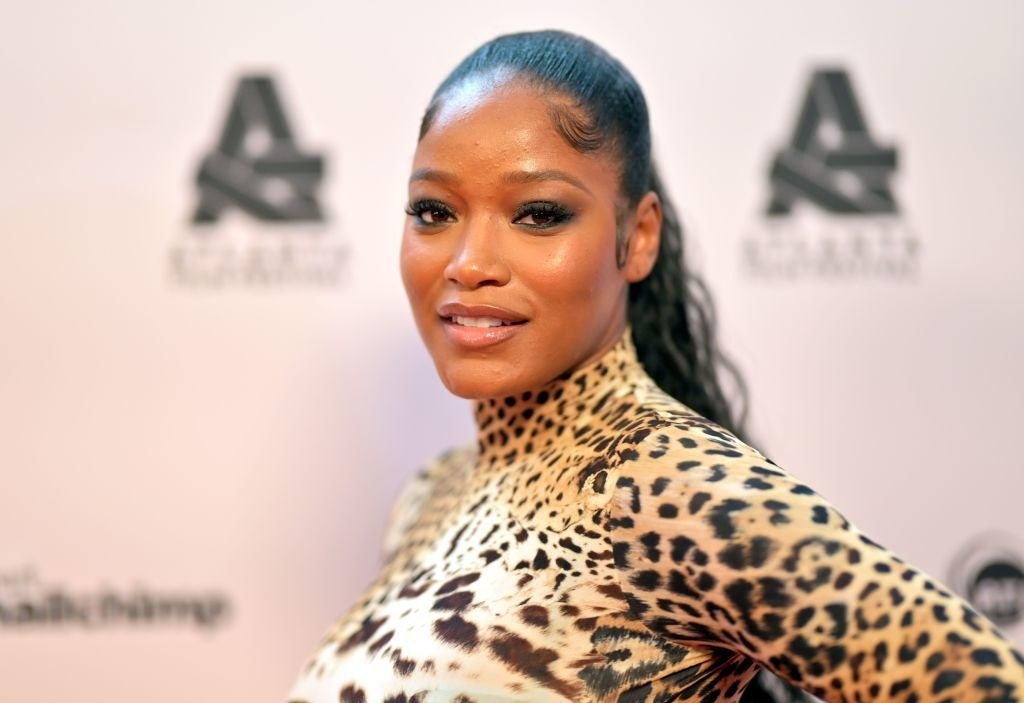
Is there a time that really stuck out to you where someone was telling you to change something about yourself and you refused?
I mean, there were so many times, I don't know if there was one specific moment that stood out. It also doesn't happen like that, like someone saying, "Hey, stop being you!" It's actually one thing after another like, "maybe you should sing like this," or "you can't be doing these kinds of songs," or "how come you never do whatever, whatever? You should be doing what ol' girl is doing." It's like a bunch of different moments like that where ultimately somebody is saying you're not good enough.
These outside voices would try to dictate the type of artist you should be, whether it be your looks or your sound. That pressure was put more on you in your music versus your acting. Was there ever a time where you felt like stepping away from music or the entertainment industry altogether?
Yeah, and I did many, many times. But I always found my way back.
There were a lot of powerful quotes that stuck out to me in your film, one in particular being, "Feeling trapped in your own skin. Waking up knowing exactly who you are and everyone looking at you seeing something different.” What did you do or what kind of advice were you given to help you hold onto your essence?
It took a lot of just, like, time, man. I have a really good support system and my family has always really been there for me. When things are really hard, I had positive voices around me that encouraged me and made me feel valued, and the importance of me being me. I think it ultimately came from me knowing that there's never going to be anybody easier to be than me. And if I'm surrounded with love and with people that are encouraging me to follow my own voice, I don't feel so inadequate as I do when I'm around people that keep telling me that I'm not enough.
So I think, for me, a lot of that was changing the narrative, or changing the environment, and going where the love is, like my mom says in the movie. There are always gonna be people who think you're corny and not good. I mean, even when you look at Prince and Michael Jackson. Prince was like, "Michael Jackson, really?" But everybody else was like, "I love Michael Jackson!" There's always gonna be somebody that doesn't think you're cool enough. So it's important for you not to pay attention to the voices that are telling you, "You suck!" Pay attention to the voice that's telling you, "Keep going!"
Male dominance is a theme also seen throughout the film. How has working in a male-dominated industry affected the way you navigated your career?
I think it affected it a lot in terms of what I felt like I had to do, who I felt I had to work with, who I felt had to give me sign-off, just all of that. I felt like it was also confusion upon these other people okaying me instead of me getting the support to create my own way. Everything was always like, "You need to get in the studio with them." It always felt like I was going through some door that only a man could really validate me through. It was really tiring. If it wasn't producers, then it was some executive...it was always somebody like that. That was just my experience. I'm sure other people have had different experiences, but mine was very much so that. I was just drained by it all. It just got to a point where I was just like, "How can I get out of this and learn how to make it through whatever this political space is?"
And, of course, I found my way, but I think when it comes to Big Boss, that's something I wanted to showcase. Even if you're not in the music industry, I think a lot of people feel like that in their respective fields. They feel like there are so many other voices that are more valid than mine that I need to validate my own. And now, here I am in situations talking to people that I don't even really value to that degree...but I need them to tell someone else that I'm important? I hate it here.
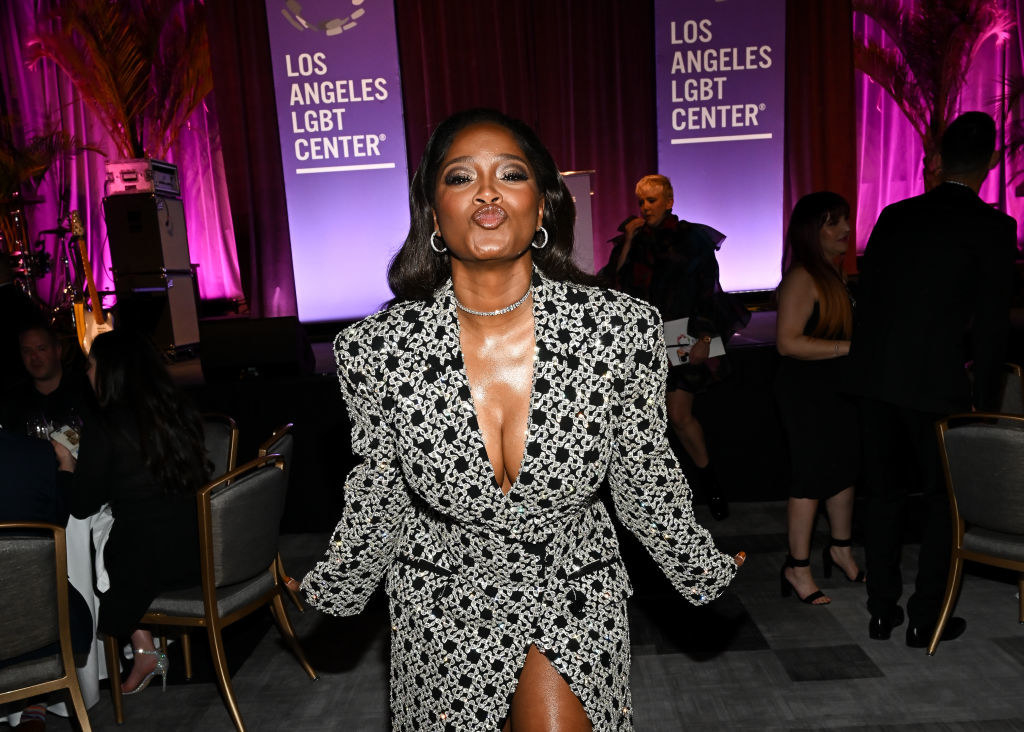
There was another great quote in the film that came right after you walked away from an uncomfortable situation with male peers you thought were your friends in the industry: "I’m so tired of being made to feel like my womanhood is some defect used against me. That everyone can see and expose me for.” Can you breakdown the meaning behind that quote?
I felt like me being a woman was always this thing! If I was a man, I would be cuttin' up with y'all. But because I'm not a man, I'm walking around here like I'm a damn leper or something? It was almost like how I showed in the film, it felt like me being a woman was seen as a weakness, or seen as not cool, or something that's not valid in some regard. It was like my talent only went so far because at the end of the day I was a woman. That's how I felt. Even if no one said those actual words, that's how it felt. It felt like it was a defect and that it was being used against me, because it would be something that other people would use as a way to victimize me.
You brought up #MeToo in the film and because you've also publicly spoken out about about sexual harassment in the industry during the #MeToo movement, I wanted to ask you about change. During a previous interview with the Breakfast Club, where you detailed an alleged sexual harassment incident with Trey Songz, you said people don't initially believe Black women when they speak out. Do you feel like that's changed at all since the movement's inception? That could refer to women speaking out in general and/or specifically Black women speaking out.
I don't. I don't think it's changed too much. I still get trolled about that, every now and then. I think most people do support me and I receive that, but ultimately it stems from a place of misogyny. That will never go away. And yes, I mean there's colorism and also racial prejudices that play a part. Absolutely. I think there's propaganda against Black women not being seen as damsels in any situation. We kind of have been over-sexualized in the media to the point that people have a hard time seeing us as innocent. You know what I mean? Even as young as 15 and 16, Black women have become sexualized so that people have a hard time, like, believing they're innocent in any scenario. There's been total propaganda in the opposite effect of women that are of a lighter complexion or of another culture, where they have not been sexualized in the same way. So, people maybe don't even always realize the judgment that they're putting on Black women in comparison to other women is deeply rooted from years and years of propaganda that's started in slavery.
So, I think that's the issue. How we have to undo that is specifically teach about propaganda in schools and in classes, before people can actually right their wrongs in their train of thinking. So, it's changed a little bit. I guess people that do the research and understand where their prejudices are coming from, but people that are just taking things at face value? Yeah, they're gonna always usually assume that a Black woman is not innocent.
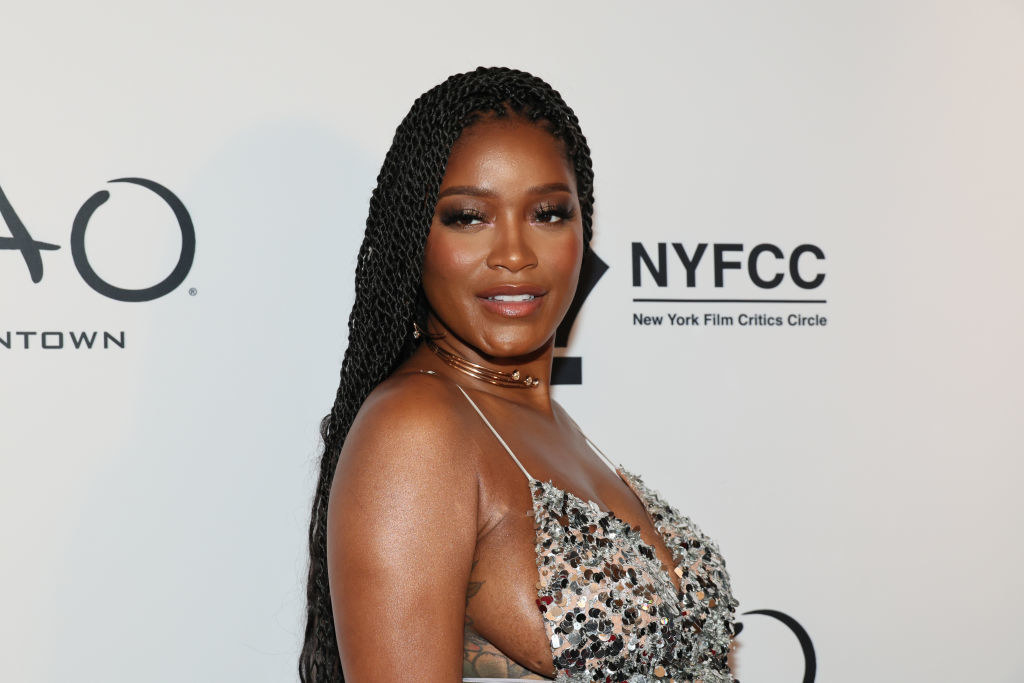
Reflecting on the past in this way can be therapeutic, but also triggering. Was there any part of the film that you were hesitant to put in there?
I just wondered if people would know who I was referring to with the characters, because everything was very much accurate. Every scenario was drawn from real experiences. And so I wondered, are people going to try to connect the dots of who and what this is mirroring? Or at what point in my career and my music that this was from? Or who was hanging around me at that time? That part made me wonder, but other than that, no.
Speaking of characters, can we get into these celebrity guest features? I love how they're all notable child actors. How did you go into choosing the guest stars and picking which roles they’d play?
I gotta say, I worked with a really great casting director. It was Pamela M. Staton and she was amazing in helping casting these roles. When I was telling her what I was looking for, she'd helped us zero in on these guys. The fact that they are also former child entertainers, I thought it would be cool to have somebody that could also share that experience with me. They're familiar faces and they fit the role. I definitely had references for what I wanted them to look like and how it mirrored itself in my life. I felt like they fit those really well. And they're all friends of mine. I've known them for years.
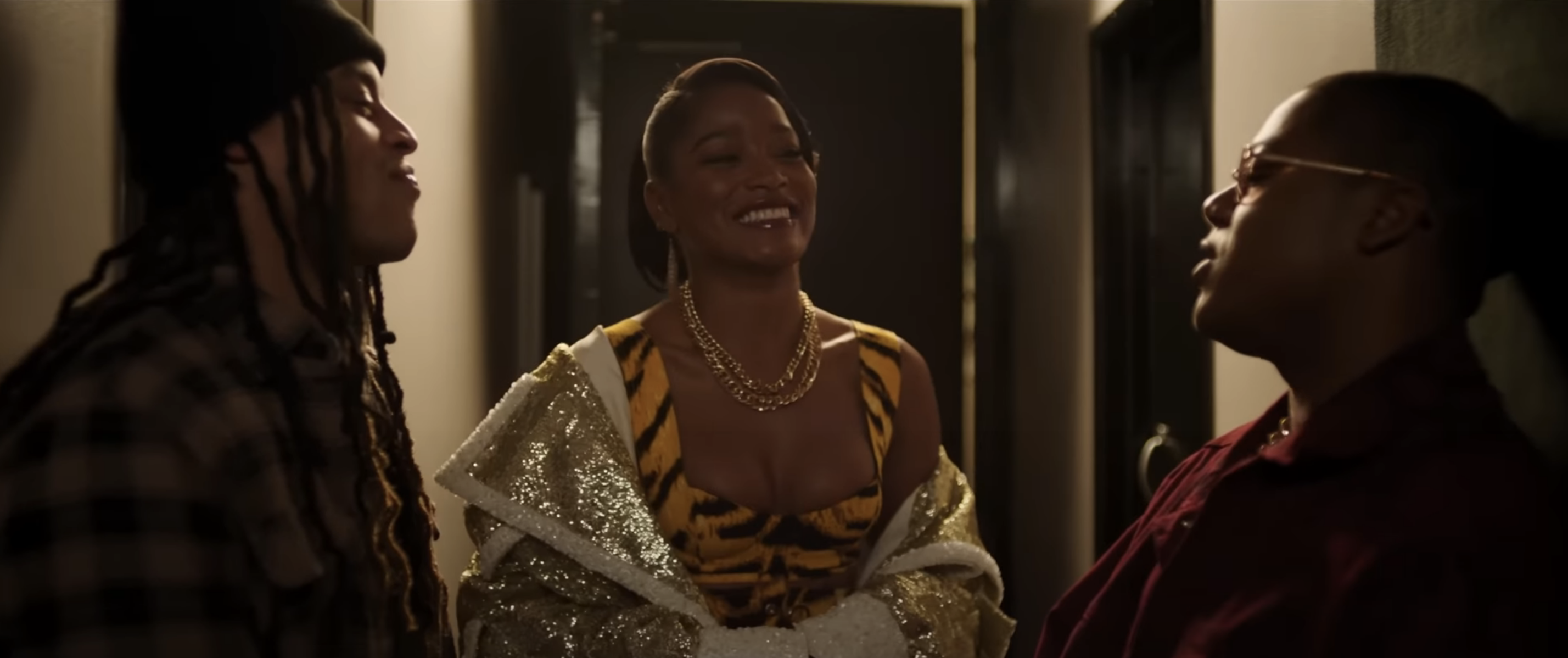
Do you want to give people a hint on who they represent or what part of your life they represent, or do you want to keep that part of it a mystery?
I mean, I don't want to call them out [laughs]. I don't want to be like this is ____ and this is ____. Like, that is crazy [laughs]. But if people want to guess and try to put two and two together, then I can't stop them from doing that.
Near the end of the film, you’re speaking to a group of girls and you remind them to hug themselves. What’s something you do to remind yourself to be gentle with yourself?
Give myself a break. And what I mean by that is I literally genuinely give myself a break. If I'm overwhelmed by the emails or overwhelmed by everything that's going on, I just kind of say, "You know what? Take the time you need to get yourself to a place where you have the capacity to really respond to this." I really didn't take it easy on myself. I don't I like to make myself feel like it's a life or death thing, which we all have the tendency to do. I just tell myself, "It's not life or death," and if it's meant to be, it's going to be. If I need it to wait, then it's going to wait. My well-being matters first — otherwise, I'm not gonna be good for anything else. I just like taking the edge off by just telling myself, "It's all right. It's gonna be fine. Take what you need. Do what you need."

Coming up as a child actor/entertainer, what has been the most challenging and the most rewarding part about your transition into your adult career?
There have been so many rewarding moments, so it's hard to say the most rewarding thing. But the most challenging was probably building the capital. I just do a lot of things on my own. For me, everything's about ownership and freedom, and I don't think people really understand how difficult that is as a creative. I think they assume that there's just tons and tons of money to go around. Or when you're signed to a label, why don't you get this and why don't you do that? And it's like, man, everything costs! And sometimes people just don't have it.
Even if you're someone who makes "good money," you still don't necessarily have the money you need to produce your own project and release your own stuff, and write/direct your own things. That takes so much time! And you know Keke "Keeps a Job" Palmer — that's what got me here, because I was really working to build the finances, to be able to have the freedom to do what I want to do. So, I think that has been the most difficult part to get to the place where I have the money to be able to do things my way.
Do you ever have moments where you look back on your career and you're in awe of how far you've come? Like, "Damn, I really beat the odds!"
Absolutely! One thousand percent and I'm thanking God every step of the way. And that's the biggest thing I hope people take away from this film, as well as my huge, immense gratitude. Even through the ups and downs, I've been able to find my way back, because his arms have always been open to me. That is my testimony to how God has never forsaken me.
And what do you hope viewers take away from your new music and film?
To put themselves first and to be their number one, and biggest, supporter, as it comes to following their dreams. And never give up!

